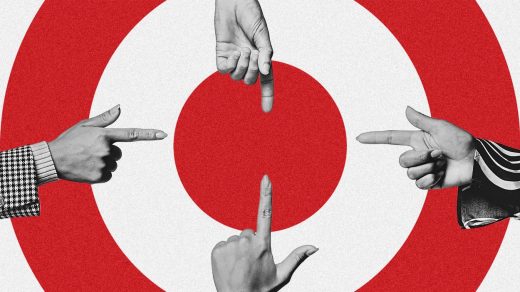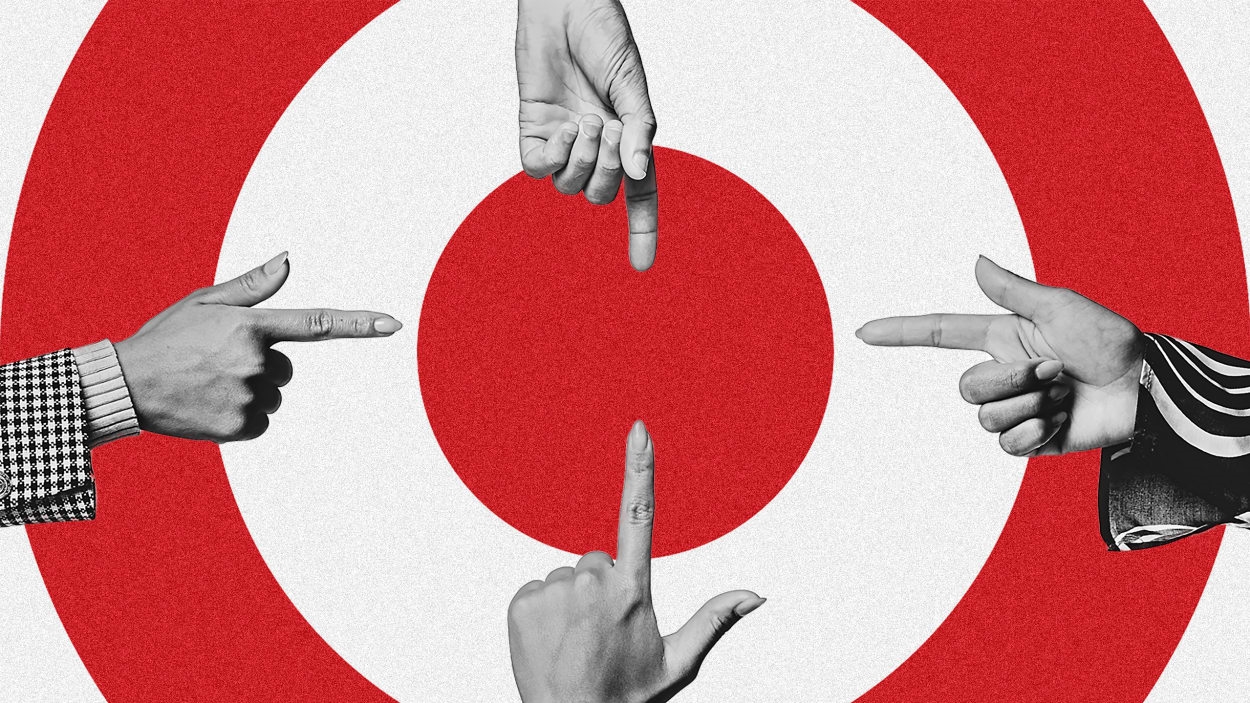Why is Gen Z always talking about Target on social media?
By Alyssa Khan
Kallie Davis and Jenna Wood are the self-proclaimed queens of Target. Their TikTok, Best Of Target, started as a pandemic project in April of 2020, before Bullseye even had an account. “We both naturally love Target.” says Davis, who is in her early twenties. “The brand is something that we always had a passion for. I mean, on a Friday night, I would love to go walking in Target with my husband or even by myself. It’s kind of like therapy to shop there.”
In around six weeks, the pair gained 75,000 followers by creating organic, unsponsored content showcasing their favorite Target finds. Since then, they’ve forged partnerships with brands like Core Bars, The Good Patch, and MONDAY haircare. The pair are also regularly approached by Target itself for paid content, but that’s only an occasional arrangement: Their most recent viral video, for example, was unpaid and gained over nine million views.
Davis and Wood are far from alone. A number of Target fan accounts have popped up in recent years, where users feature everything from hair care to home decor, weighted plush toys, and appliances. Creator accounts like @samifisher3, @ashleynoelleeee, and @parker_ewing post videos about their Target hauls and their varying degrees of obsession with the corporate monolith. Target content lives most notably on lifestyle and wellness TikTok, which aligns with data from consumer research reports showing that Gen Z often turns to the retailer for personal care, household goods, clothing, accessories, and beauty private label items.
To be sure, it’s not just Gen Z fawning over Target. The big box giant is a ubiquitous presence across generations, providing the perfect balance of millennial pink, Y2K nostalgia, minimalism, and accessibility to their offerings. “There’s something for everyone at Target,” says Davis, who attributes the retailer’s reputation and social media success to its versatility. “The joke is that you could walk the aisles in Target forever, you’ll always find something.”
Target comes in at number seven for the top 100 retailers by U.S. sales for 2022, with $104.62 billion in revenue. The retailer holds the same rank in Morning Consult’s recent poll of Gen Z’s favorite brands, one-fifth of a percentage point behind Walmart.
But the statistics across social media platforms tell a different story.
When compared alongside YouTube (the top brand in a Morning Consult poll) and Walmart (the top pick in a National Retail Federation), Target is leading the follower count race by over a million on TikTok. What’s more, data from C+R research shows that Target is the most popular retailer among college students; the brand reinforced that relationship by opening over two dozen locations on or near college campuses prior to the pandemic.
Across platforms, Davis says her audience is a close 50-50 split between the two generations: Gen Z and millennials. The difference comes down to the platform. Social platforms have become a major battleground for brands when it comes down to consumer acquisition. According to market research firm GWI, social media channels have grown to be the top source of brand discovery and product research for Gen Z consumers. As buying power begins growing in Gen Z’s hands, capturing the consumer group is crucial for brands and retailers. Target is removing the legwork between acquisition and preservation by meeting consumers from both generations where they live: on social media.
Nadya Okamoto, cofounder and CEO of August, an inclusive and sustainable period-care company, launched her business on TikTok. She used the platform as a vehicle for expression, expansion, and community building. Now planning to shift from the direct-to-consumer model to retail, she says launching in Target stores seemed like the most natural choice.
“Target has done a really great job of standing by a lot of Gen Z values,” says Okamoto, who started her company in 2020. “They’ve been out there wanting to push for more sustainability initiatives, and they have been vocal about issues around gender, inclusivity, and queer rights.”
Indeed, research shows that, unlike boomers and millennials, who often spend their dollars on amenities like cars and travel, Gen Z consumers are really looking for three qualities when it comes to consumption: They want unique, unlimited, and ethical retailers. The generation is bringing a demand for authenticity, accessibility, and social responsibility to their consumer behavior. In an effort to better connect with this new breed of shoppers, Target has launched an affiliate program that allows influencers to partner with the brand via social media along with an incubator program to nurture up and coming entrepreneurs.
The defining factor between the retailer and Gen Z is trust, an attribute that is hard to capture within the least brand loyal demographic. According to Diana Smith, associate director of retail and ecommerce at Mintel, Target is doing a number of things right to capture Gen Z consumers, but there are a few attributes that really set it apart: its omni-channel approach, affordable pricing, product selection, and corporate social responsibility initiatives.
“While Gen Z is known to be the least loyal in retail, they will show their loyalties more so to a retailer that delivers their needs consistently and captures their trust,” Smith says. “Trustworthiness is the second most associated attribute they have with Target.”
(19)



